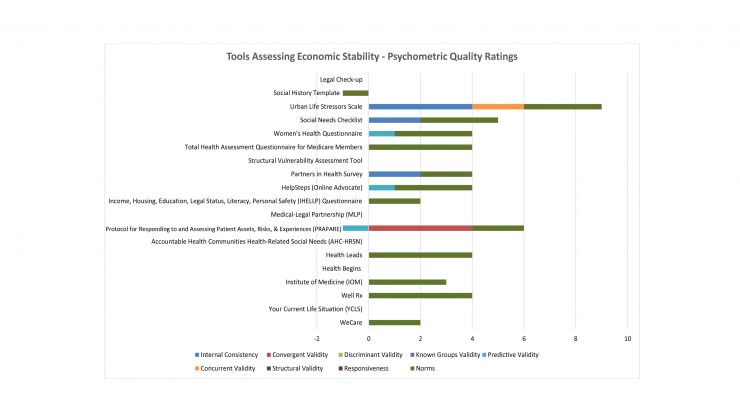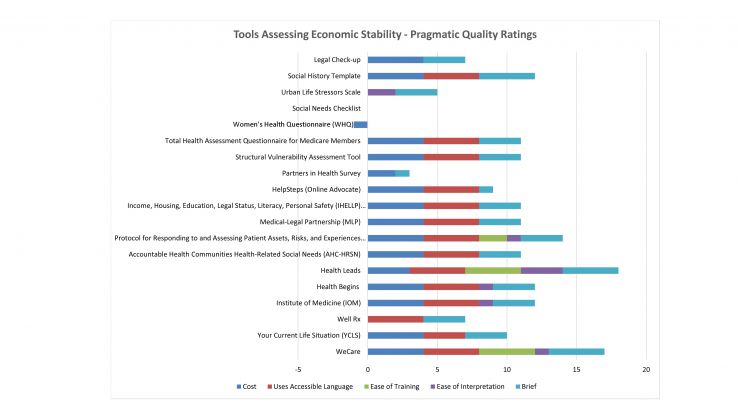Economic Stability
Economic Stability refers to any measure of a person’s finances and the ability or inability of an individual or family to afford basic life necessities.
Constructs Related to this Domain
Employment
Factors such as rate of employment or unemployment, employment opportunities, employment benefits, and number of jobs.
Income
Factors such as a person’s net or gross income, what taxes they pay, or their ability to set aside savings or assets or make investments.
Expenses
Every day-to-day outflow of money for goods, services, or other payments such as bills for tuition, rent/mortgage, utilities, insurance, credit card payments, etc.
Debt
Money owed by one party (the borrower or debtor) to a second party (the lender or creditor). The creditor could include banks, credit card companies, loan providers, businesses, or other individuals. Relevant debt information could include the amount and timing of repayments, of principal and interest costs.
Medical Bills
Specifically refers to money paid for any medical expense such as procedures, hospital stays, emergency services, etc. Also include dental or mental health expenses in this code.
Economic Support
Monetary support from friends, colleagues, or family. It could also refer to economic support programs such as scholarships, welfare/benefit programs.


